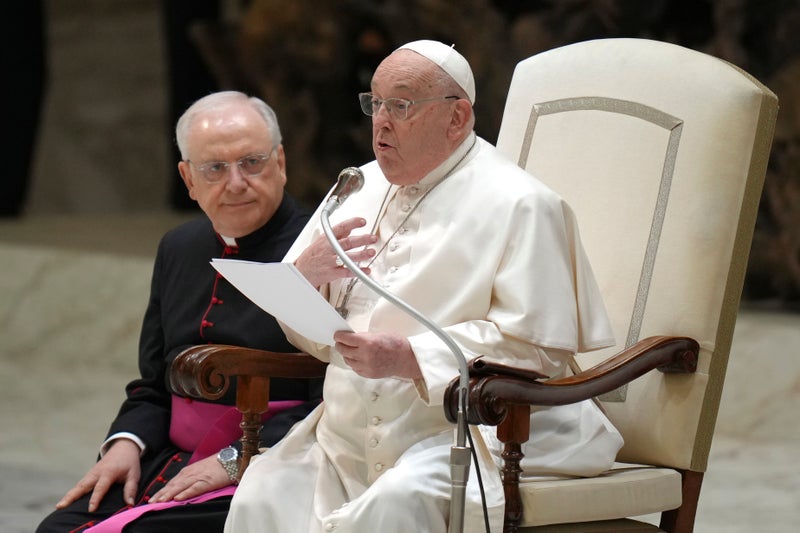US president Donald Trump declared the conservative victory as a ‘great day for Germany’ before congratulating himself. The German conservative opposition is projected to win the most votes in the country’s snap election as the mainstream parties vowed to battle a surge in far-right support off the back of a spate of terror attacks and economic turmoil.
![[Leader of far-right AfD Alice Weidel waves a German flag at the AfD party headquarters in Berlin, Germany]](https://static.independent.co.uk/2025/02/23/20/Germany_Election_76219.jpg)
Freidrich Merz, the head of the centre-right Christian Democratic Union (CDU), hailed his party’s “terrific election campaign” as initial projections had them with 28.5 per cent of the vote. Around 83.5 per cent of Germans turned out to vote, the highest figure since the reunification in 1990.
![[German chancellor Olaf Scholz casts his vote at a polling station in Berlin, Germany, Sunday]](https://static.independent.co.uk/2025/02/23/20/Germany_Election_17432.jpg)
In second place is the Alternative for Germany (AfD), a far-right group that has called for the deportation of all foreign-born people in Germany who have committed a crime. Projections estimated that around 850,00 CDU voters had defected to the AfD, pushing them to 20.5 per cent of the total vote.
The far-right party’s leader, Alice Weidel, hailed the “historic” election result which saw her party double their vote from 2021. She then suggested the AfD “hand is outstretched” to join a coalition government. To deprive them of that, she added, would be tantamount to “voter fraud”.
Mr Merz said it would be months before the CDU worked out its coalition, until at least Easter. The coalition will require a 316-seat majority, with the CDU projected to have won 209 seats themselves. The most likely grouping will be with the Social Democratic Party (SPD) and possibly, also, the Greens, who came third and fourth with a projected 119 and 90 seats respectively. Mr Merz says he would prefer to have just one coalition partner.
Despite courting controversy after accepting AfD votes last month to push through a motion proposing tougher migration laws, the 69-year-old future chancellor and former corporate lawyer reiterated on Sunday night his promise not to form a coalition with the far-right political party. Germany has maintained a policy of not working with the far-right in government since the 1950s, known as “Brandmaeur”.
In a televised debate with all the party leaders, after the first election projections were released, Mr Merz said Ms Weidel “does not seriously believe that we will accept his hand”. But German political analyst Nicolai von Ondarza says there is a strong feeling within the CDU that this is “a government of last chance” to fend off the appeal of the AfD and that they will “need to be more radical in delivering for economic growth and on migration” to do that.
He added that the AfD will likely spend the next few months trying to “tempt the CDU” by pushing proposals in the Bundestag on migration and tax policy that neither the SPD nor the Greens will support. Mr Merz was greeted with cheers as he took to the stage at the CDU’s headquarters in cold Berlin on Sunday evening before admitting he was “aware of the responsibility that now lies ahead” of him.
When he eventually assumes the role, his in-tray will be spilling over. German magazine Zeit described it on Sunday as “a mountain of problems of mythical proportions.”. He will need to tend to Germany’s struggling economy and infrastructure, become a leading European figure in supporting Ukraine against Russia and build ties with the Donald Trump administration across the Atlantic, as well as fend off the rise of the AfD, a group that the US president has all but endorsed.
Speaking after the first election projections, Mr Merz warned that the new US administration had made it “clear that this government is fairly indifferent to Europe’s fate” and that the continent needed to be more self-reliant on defence. Nonetheless, Mr Trump hailed the election result as a “great day” for the country, suggesting that the vote for conservatism showed that “the people of Germany got tired of the no common sense agenda, especially on energy and immigration”.
Writing in all caps and referring to himself in the third person, he added that it was also a victory for “the United States of America under the leadership of a gentleman named Donald J. Trump”. He did not mention the AfD but senior figures in his administration, including X owner turned government official Elon Musk and vice president JD Vance, have endorsed the party and called for an end to the “Brandmaeur”.
Last November, a failure to improve the struggling economy caused the collapse of the three-way coalition government under chancellor Olaf Scholz, forcing this snap election. The vote had originally been scheduled for September. Mr Scholz struck a markedly different tone to his soon-to-be successor at the headquarters of his party, the Social Democratic Party (SPD), after they finished with their worst postwar result in a national parliamentary election. They are projected to win just 16.5 per cent of the vote, down nearly 10 per cent from the election in 2021.

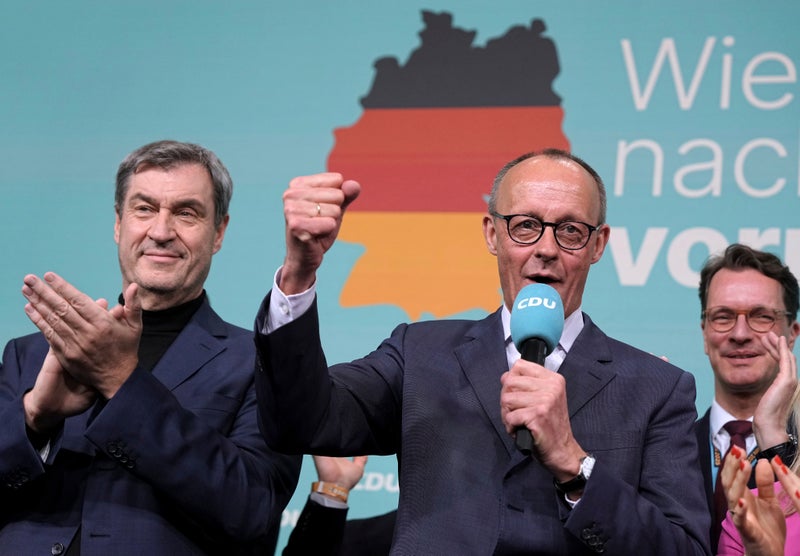




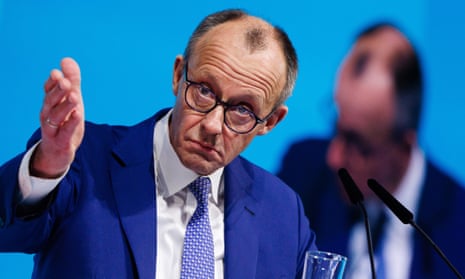







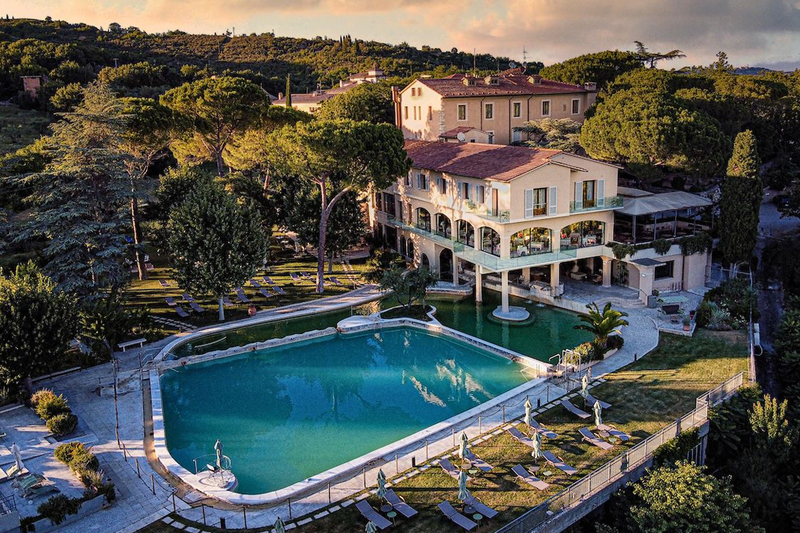
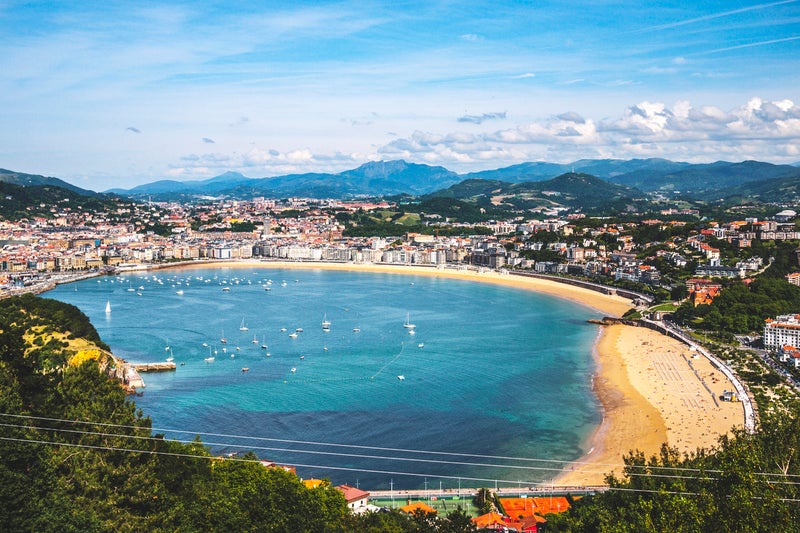

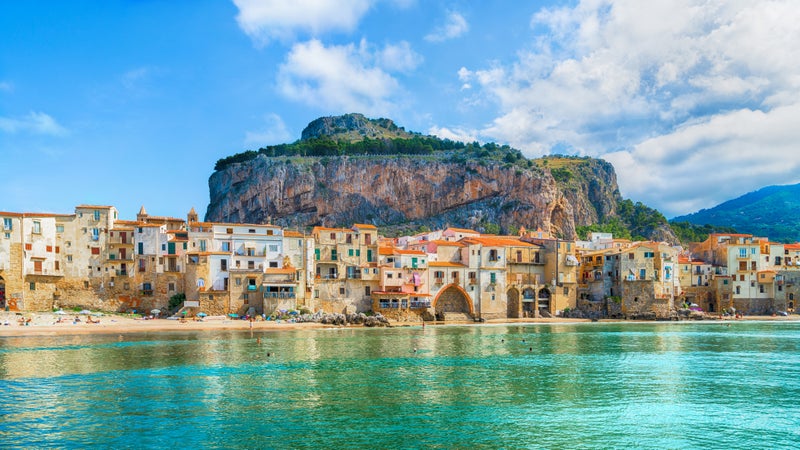

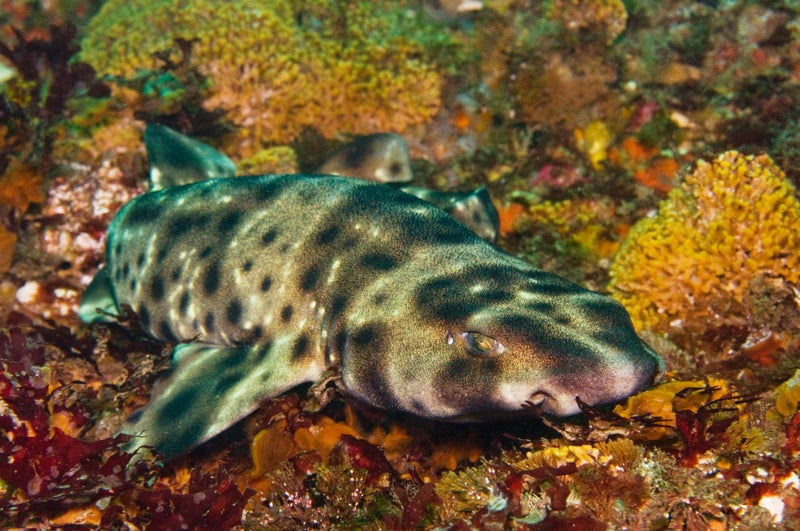

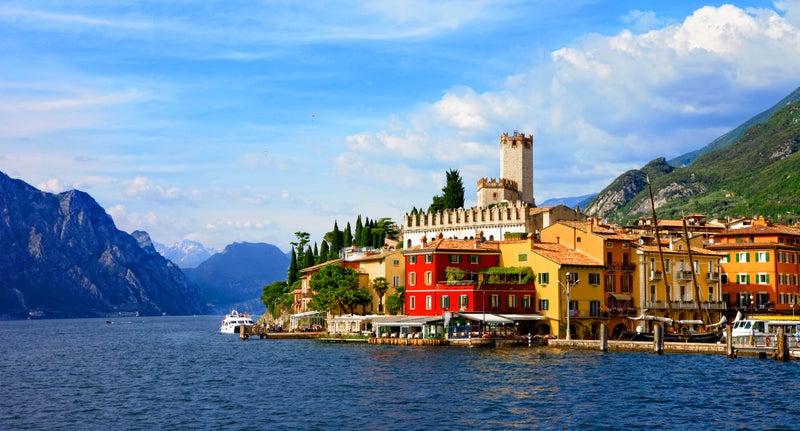

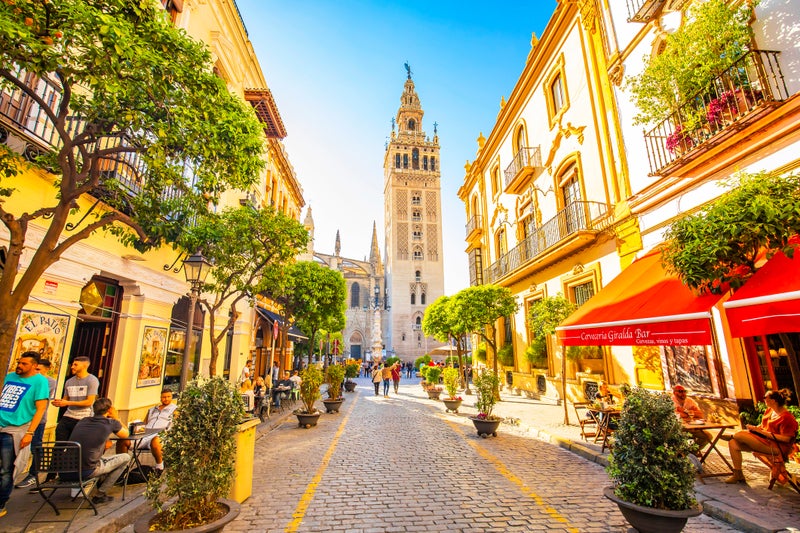

.jpg?auto=webp&width=800)





